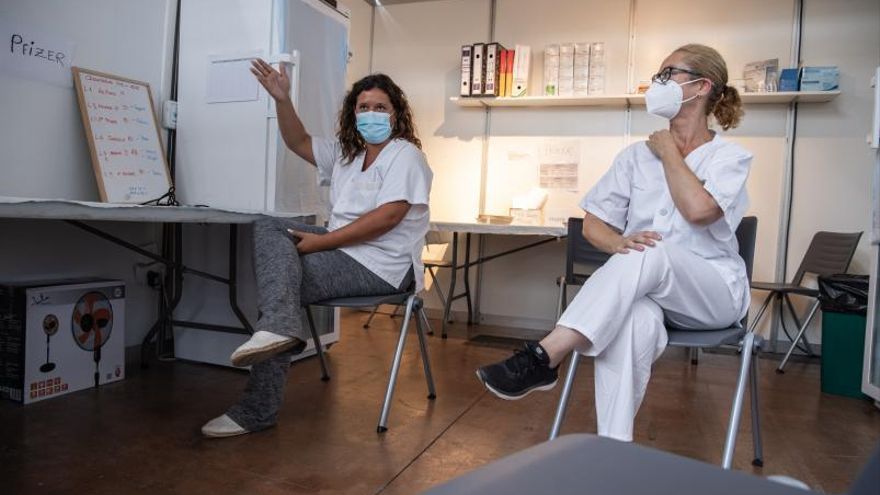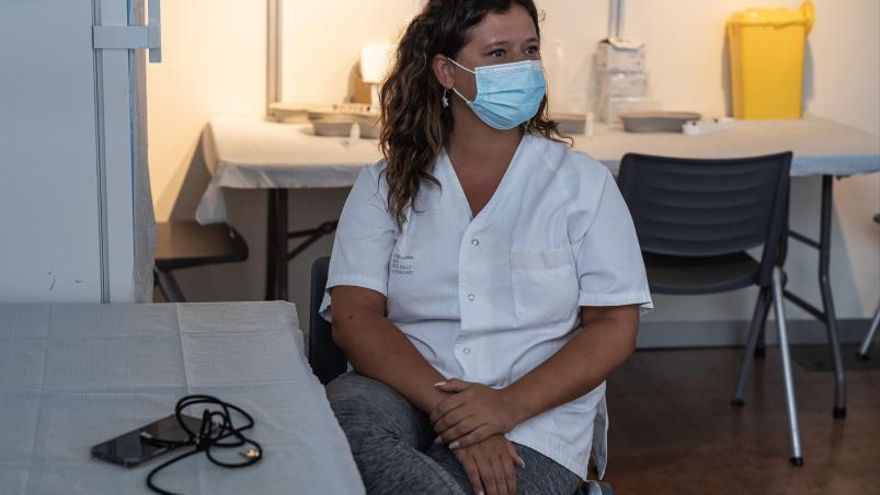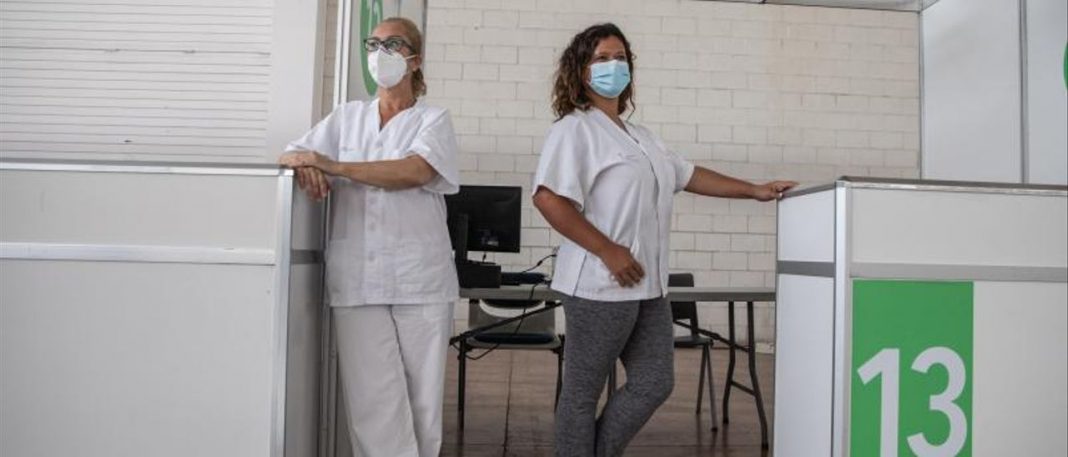The testimonies of Berta Lozano and Encarnación Medina are essential to gain an insight into the day to day life of the vaccination centre of the Recinto Ferial. Their official position is that of coordinators, but it could be said that they are nurses, managers, educators and reporters. That’s what it means to be both on the ground and in contact with the Nursing management at the same time.
 The two coordinators talk in the room where the coronavirus vaccine doses are stored. ZOWY VOETEN.
The two coordinators talk in the room where the coronavirus vaccine doses are stored. ZOWY VOETEN.
Their work ranges from receiving the vials that arrive each day to scheduling the shifts of the staff, volunteers who choose to work overtime, no less than 14 hours, on their days off. Who volunteers to work these long hours? “On weekends, staff from Primary Care come in. We also get people from outpatient clinics, and many others. At the moment we have two retired nurses,” they point out.
 Lozano, in a moment of conversation. ZOWY VOETEN.
Lozano, in a moment of conversation. ZOWY VOETEN.
They have been coordinating the process from the beginning. During this time they have seen and experienced everything, but they remember with special affection some particularly moving moments, small stories that highlight the role of vaccines in overcoming the health crisis. One of them, recalls Medina, is that of a former coronavirus patient who came to get vaccinated. He had been intubated in an ICU, and when he passed by the vaccination point – in a wheelchair because of the after-effects – he asked for the nurse who had been at the foot of his bed during the difficult process, and who happened to be in the ward that day. “You saved my life,” Medina says the man exclaimed. “It was a tremendously emotional moment,” she says.
“I’m pro-vaccine first and foremost,” Medina says. “They save lives. They don’t prevent infection, which many people are not sure about, but they do mitigate the symptoms, which are milder. For Lozano, in fact, the main reason for getting vaccinated is that the time spent in hospital is reduced. She explains that her colleagues in the care department tell her that those hospitalised in the ICU “are not the patients they used to be, with very long stays”.
However, the experiences at the vaccination point are varied. “We find everything,” summarizes Lozano. “At the beginning – of the vaccination – the older ones came excited and the hair stood on end”. “Now we’ve gone to the other extreme,” he says. “People come with doubts or who do not believe in this,” says Medina, who explains that on several occasions some people decide to leave without receiving the vaccine. For this reason, she explains, they do a lot of “education and psychology”, and boasts that she has convinced people who were initially reluctant to get vaccinated.
On this point, Lozano clarifies that they do not force anyone to get vaccinated reluctantly. “I always tell them that if they get the vaccine it’s because they – the users – want it,” she says. Medina specifies that some of the people who get vaccinated without much persuasion do so in order to obtain the document known as a covid certificate. For Medina, the problem is that many people are looking for “information that is misinformation, instead of thinking about all the efforts that are behind the vaccine” against the coronavirus. Lozano, for her part, adds: “Now there is a lot of concern about the brand of vaccine that is going to be given, and nobody knows the brands that have been given in the past” to treat different pathologies.
For the full article, please visit Diario de Ibiza website here.

